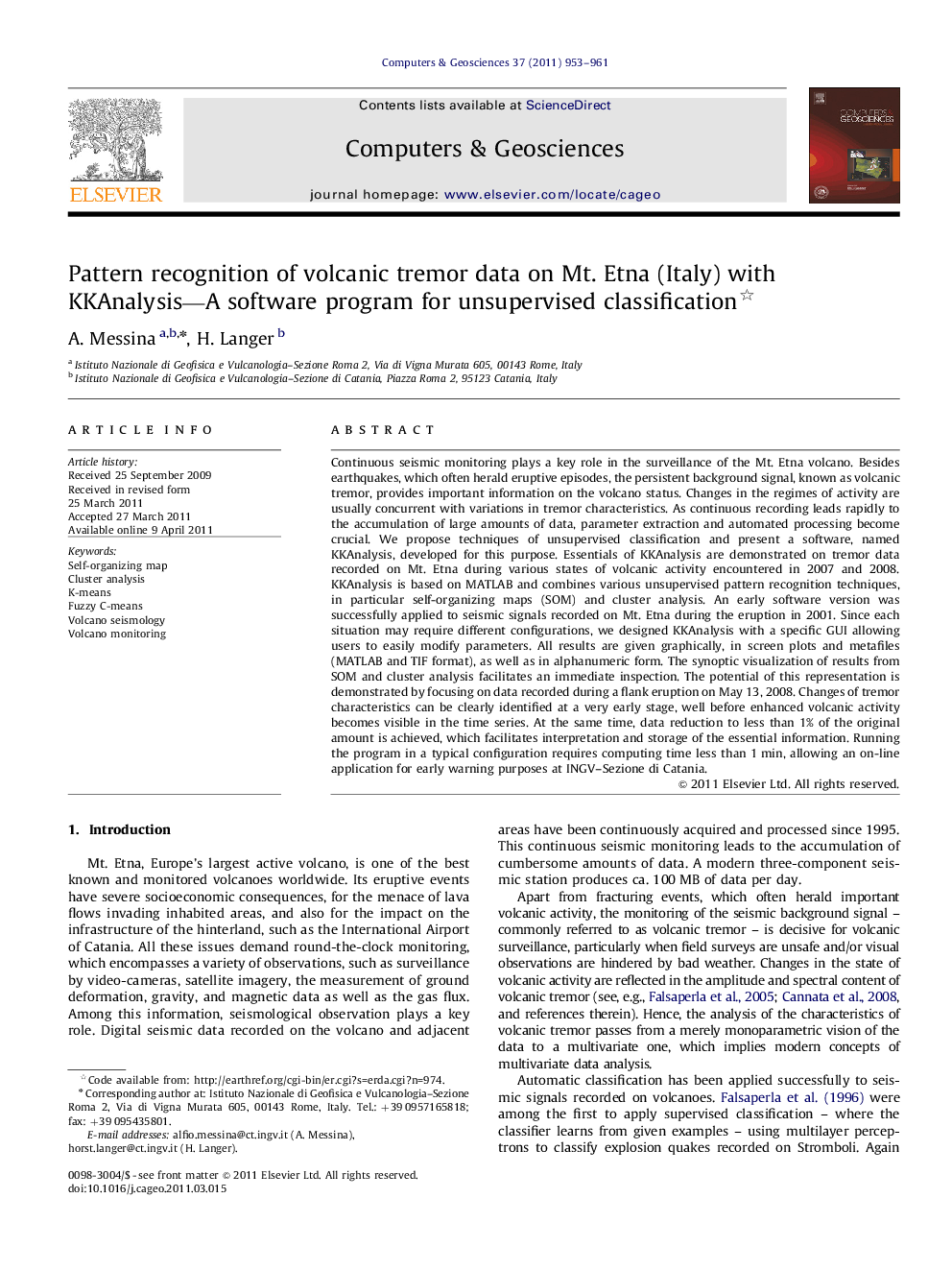| کد مقاله | کد نشریه | سال انتشار | مقاله انگلیسی | نسخه تمام متن |
|---|---|---|---|---|
| 506927 | 865068 | 2011 | 9 صفحه PDF | دانلود رایگان |

Continuous seismic monitoring plays a key role in the surveillance of the Mt. Etna volcano. Besides earthquakes, which often herald eruptive episodes, the persistent background signal, known as volcanic tremor, provides important information on the volcano status. Changes in the regimes of activity are usually concurrent with variations in tremor characteristics. As continuous recording leads rapidly to the accumulation of large amounts of data, parameter extraction and automated processing become crucial. We propose techniques of unsupervised classification and present a software, named KKAnalysis, developed for this purpose. Essentials of KKAnalysis are demonstrated on tremor data recorded on Mt. Etna during various states of volcanic activity encountered in 2007 and 2008. KKAnalysis is based on MATLAB and combines various unsupervised pattern recognition techniques, in particular self-organizing maps (SOM) and cluster analysis. An early software version was successfully applied to seismic signals recorded on Mt. Etna during the eruption in 2001. Since each situation may require different configurations, we designed KKAnalysis with a specific GUI allowing users to easily modify parameters. All results are given graphically, in screen plots and metafiles (MATLAB and TIF format), as well as in alphanumeric form. The synoptic visualization of results from SOM and cluster analysis facilitates an immediate inspection. The potential of this representation is demonstrated by focusing on data recorded during a flank eruption on May 13, 2008. Changes of tremor characteristics can be clearly identified at a very early stage, well before enhanced volcanic activity becomes visible in the time series. At the same time, data reduction to less than 1% of the original amount is achieved, which facilitates interpretation and storage of the essential information. Running the program in a typical configuration requires computing time less than 1 min, allowing an on-line application for early warning purposes at INGV–Sezione di Catania.
Journal: Computers & Geosciences - Volume 37, Issue 7, July 2011, Pages 953–961